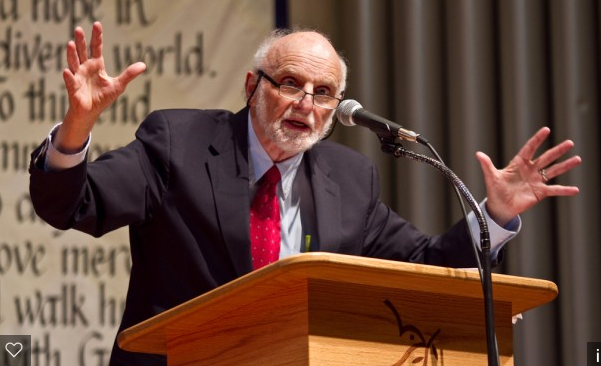Walter Brueggemann. God, Neighbor, Empire: The Excess of Divine Fidelity and the Command of Common Good. Waco: Baylor University Press, 2016.
Chapter Two: Justice: From Zion Back to Sinai (39–70)
There is a key in the subtitle of this chapter, for Brueggemann will demonstrate an important distinction between worship as it became at the temple, and what was initially given to Israel as they camped at the base of Sinai. He begins with Zion, and the established worship practice of the nation: “A beginning point is to notice the ease and readiness with which the liturgies of Zion commit to justice” (40, with examples following). The purpose of this liturgy is to ‘perform’ theology, and to “order the world for righteousness” (41). The five words of fidelity appear again in this section, now also including a sixth – ysr, “equity.”
There are two basic issues that are identified coming from the worship of Zion perspective. First, many of the expression have become generic in their presentation: “This lack of specificity reminds us that we are witnessing the performance of state ritual in the royal temple before the urban elites who govern” (42). Rather than searching for nuance to such a sweeping statement, it would do well to hear this perspective as it stands, for it raises an interesting point. This is coupled with a second issue, and that is the development of justice as something that kings are responsible for doing – a top-down ordering. To this the prophet Ezekiel speaks about the failure of human agency, especially from the king’s office, to do justly (Ezekiel 34).
The notion of a “trickle down” justice is what concerns the author here: “Now the reason I am suspicious of such justice is that there are indications that the royal players in this liturgy were not overly zealous of about the matter” (45). In other words, liturgy was not making an impact upon the daily life of Israel. There is a disconnect between those who rule – those who have been entrusted with enacting covenant fidelity – and those who were living in the land. Too much was dependent upon the kings, and the narrative shows signs of this failed perspective leading to a destroyed nation (46ff.).
Thus, Brueggemann contrasts this situation in Zion with what was given to Israel at Sinai. The older traditions show a God who is among his people, “who is down and dirty among the victims of old, exploitative economy” (49). The older traditions had not sanitized him in the liturgy, but encounter him and heard his voice. And this is not an indictment on the liturgy per se, but on what had become of genuine fidelity that enacted God’s justice and righteousness throughout the nation.
To demonstrate the distinctiveness of Israel Brueggemann returns to the Exodus, to place the life under Pharaoh with the life given through Yhwh. It begins with abundance: “Pharaoh is a master of abundance” (51). Pharaoh has ample land, food, and women in the biblical story, and is a constant presence in the early days of Israel’s history.
Even through the work of Joseph, which enabled the survival of God’s people, there is an emphasis on the abundance of Pharaoh and his control of the world: “In the end, Pharaoh’s policy of accumulation results in monopoly” (52). This is the story as it sets up Exodus, where the people of God will need to depart from Pharaoh’s dominion. There is no restraint to Pharaoh’s power, and this does not yield a world of justice. And so, it becomes God’s work to interrupt the “totalizing system” (55).
The departure of God’s people from slavery is the key narrative for the biblical story, and the element of justice overcoming injustice lies at its center. And yet, even in the midst of this triumph, it was difficult for God’s people to embrace this new world unfolding before them, and they question their ability to survive the wilderness (Exodus 16:2–3). “Such a grip does Pharaoh have on the imagination of Israel that wilderness seems to them a zone of death” (58). This is an important statement: it demonstrates the challenge of shaking off the reality of the political sphere which had dominated their lives and accepting the promise and providence of God.
This is the same challenge that we so often face in our modern culture when trying to enact justice in an overly-politicized world. Perhaps we have allowed ourselves to become trapped by worldly thinking that promotes social domination and political gain – the “trickle down” justice we expect our government to provide – rather than being the agents of righteousness and fidelity in our individual lives.
“I suggest that the Bible is the master script for that contest that is always being re performed” (63). There is always a Pharaoh in our world – someone who believes that nothing exists outside of their sphere of influence – whether individuals or entire nations. But will the people of God today choose to be “Egyptianized” to benefit Pharaoh (cf. 51), and wall through a disconnected and sanitized liturgy, or will we instead look to enact justice by subverting the power structure of our society to respond to the cry of the needy, the broken, and the hurting?
Such a reading of the Old Testament is ripe for the radical message of Jesus, which will push the work of justice even further still.






